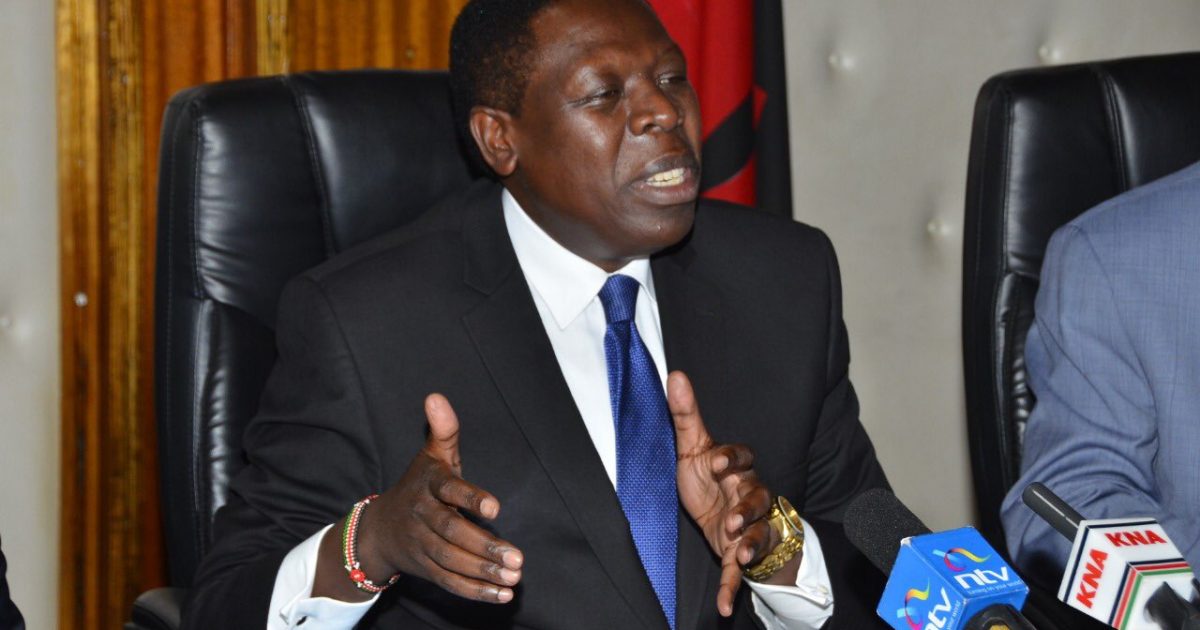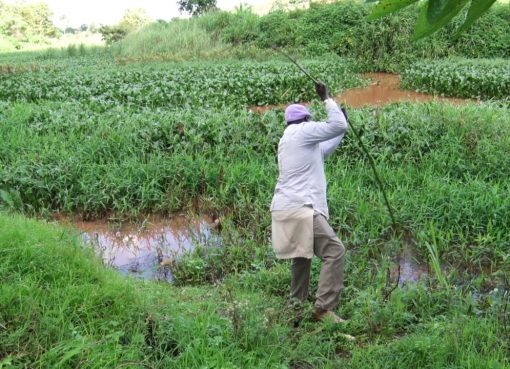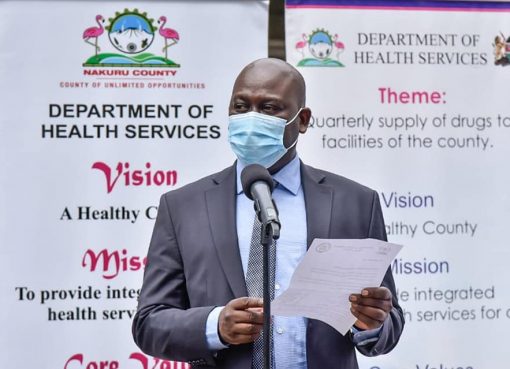The government is in the process of releasing Sh2 billion under the National Drought Emergency Fund which will be used to respond to the ongoing drought situation in the country.
Ministry of Devolution and ASALs Cabinet Secretary (CS) Eugene Wamalwa said that Kenya is facing drought as a result of the short rains that failed between October and December 2020 similarly the long rains expected between March and May 2021 were below average across the country particularly in the Northern and Coast regions.
“As at now the experts and the meteorological report anticipate that the short rains in October are likely to fail and if this happens Kenya is likely to face an emergency in terms of the drought afflicting most of Northern Kenya and the coastal region,” said Wamalwa.
Speaking on Wednesday during an interview with KNA, Wamalwa said that so far over 10 counties are affected heavily and they include Turkana, Marsabit, Garissa, Wajir, Mandera, Isiolo, Samburu, Tana River, Kilifi and Lamu.
“We estimate that the number of people affected by the drought is two million Kenyans and as the national government we are doing everything to support these families by cushioning the most vulnerable people in the counties most affected by the drought,” said Wamalwa.
He said that they are providing hunger safety nets that cushion over 100, 000 households in the four counties of Turkana, Marsabit, Wajir and Mandera which are the most affected.
Wamalwa highlighted that the government is expanding these safety nets to cover Garissa, Tana River, Samburu and Isiolo and these will bring those covered to eight counties and an additional 32, 000 households cushioned against hunger and the ravages of drought.
“We are also supporting counties in water trucking and so far we have released Sh500 million that will go towards supporting these counties and ensuring they take water to the affected families most of whom are pastoralists and have moved in search of water and pasture and we must ensure that water bowsers move to the locations where the people are,” said Wamalwa.
“Since 2011 when we had the worst drought in this region, we formed the Ending Drought Emergency Strategy to bring together countries in the Horn of Africa and the Intergovernmental Authority on Development (IGAD) region to ensure we put in place institutional and legal frameworks to combat drought and we have done well as a country through the National Drought Management Authority (NDMA) where we have institutionalised responses to drought,” Wamalwa said.
The CS said that through these efforts the country was awarded the resilience champion of the IGAD region and other countries are benchmarking on Kenya to see how the institutionalisation of the drought management is being conducted.
“NDMA has been doing an excellent work by building resilience in the affected counties; we were also the first country in Africa to pass the Climate Change Act in 2016 and other countries are benchmarking with us since we have the climate change action plan and we are now moving to the counties where 41 county assemblies have passed the climate change bills and are in the process of setting up the climate change fund which will see better response right from the counties to the national level,” Wamalwa said.
He added that through the National Drought Emergency Fund they have set aside about Sh2 billion which is about 50 per cent of the fund going towards resilience building with 40 per cent of the fund going into improving response to drought and five per cent will go towards recovery in areas where there are effects of drought.
Wamalwa said that the government is each day getting better prepared for disasters and added in the future drought will no longer be an emergency in the country.
The CS called on counties to be the first line of defence against drought by allocating over two per cent of their budget for emergencies as stipulated in the Public Finance Management Act.
Wamalwa said that they are not only looking at drought but focus is also on other disasters and they have a policy in place for disaster risk management which was brought before cabinet and it has been approved.
“In the last two years we have had drought, floods, desert locust invasion and we also have Covid-19 which we are dealing with and we must be able to deal with all disasters,” said the CS.
By Joseph Ng’ang’a





